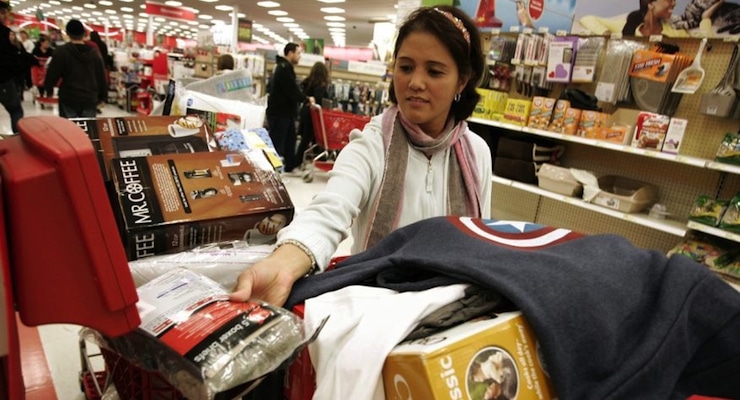

Conference Board Consumer Confidence Index. (Photo: Reuters)
The Conference Board reported its gauge of consumer confidence spiked in December to a reading of 113.7 from a upwardly revised reading of 109.4 in November. Economists expected the gauge to rise to 109.0.
“Consumer Confidence improved further in December, due solely to increasing Expectations which hit a 13-year high (Dec. 2003, 107.4),” said Lynn Franco, Director of Economic Indicators at The Conference Board. “The post-election surge in optimism for the economy, jobs and income prospects, as well as for stock prices which reached a 13-year high, was most pronounced among older consumers. Consumers’ assessment of current conditions, which declined, still suggests that economic growth continued through the final months of 2016.”
The post-election surge in optimism in consumer confidence mirrors a closely watched consumer sentiment gauge. The Survey of Consumers released last week found a post-election bounce that was more than double the previous record set after President Ronald Reagan was elected in 1980 during an economic malaise.


U.S. President-elect Donald Trump is seen speaking on a television on the floor of the New York Stock Exchange (NYSE) in New York, U.S., on Wednesday, Nov. 9, 2016. U.S. stocks fluctuated in volatile trading in the aftermath of Trump’s surprise presidential election win, as speculation the Republican will pursue business-friendly policies offset some of the broader uncertainty surrounding his ascent. Photographer: Michael Nagle/Bloomberg
“Looking ahead to 2017, consumers’ continued optimism will depend on whether or not their expectations are realized,” Ms. Franco added.
The current market index demonstrated consumers’ assessment of current conditions fell in December, a condemnation of the status quo. Those saying business conditions are “good” decreased from 29.7% to 29.2%, while those saying business conditions are “bad” increased from 15.2% to 17.3%.
However, consumers are optimistic about the near future, which will see a new president and new economic and public policy. Consumers’ short-term outlook improved considerably in December. Those expecting business conditions to improve over the next six months increased from 16.4% to 23.6%. Those expecting business conditions to worsen fell from 9.9% to 8.7%.
The monthly Consumer Confidence Survey is based on a probability-design random sample conducted for The Conference Board by Nielsen, a leading global provider of information and analytics around what consumers buy and watch. The cutoff date for the preliminary results was December 15.
The most damning journalistic sin committed by the media during the era of Russia collusion…
The first ecological study finds mask mandates were not effective at slowing the spread of…
On "What Are the Odds?" Monday, Robert Barnes and Rich Baris note how big tech…
On "What Are the Odds?" Monday, Robert Barnes and Rich Baris discuss why America First…
Personal income fell $1,516.6 billion (7.1%) in February, roughly the consensus forecast, while consumer spending…
Research finds those previously infected by or vaccinated against SARS-CoV-2 are not at risk of…
This website uses cookies.